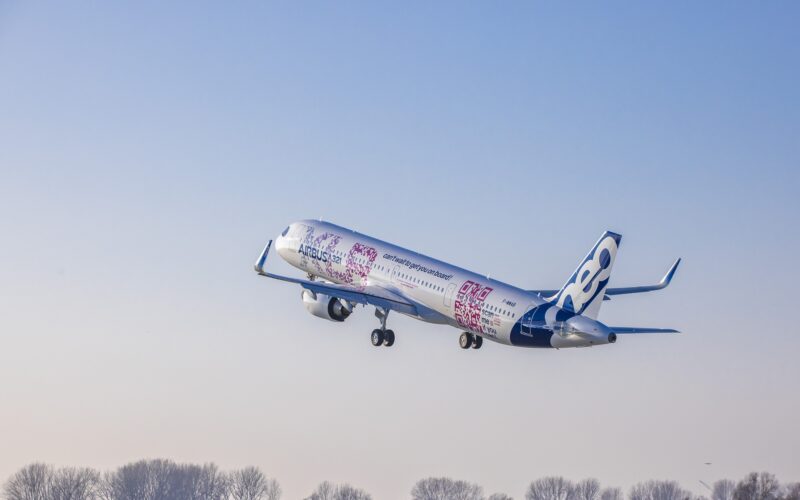Airbus’ A321XLR flight-test aircraft has returned from a four-day cold-weather ground testing at Iqaluit in northern Canada.
The purpose of the trip was to “validate the aircraft operation in cold weather for ground operations”.
A few weeks earlier, one of the other A321XLR test aircraft made a similar visit to Iqaluit where the operation of the hydraulics and other systems at extreme cold temperatures – after an overnight “soak” at minus 40C.
“This time around we tested the cabin water and waste system – which required the temperatures inside the unheated cabin to soak at below –15C overnight,” explained Tuan Do, lead flight test engineer. “To this end, several cold soaks were conducted over successive nights with the doors left open, while the outside temperature was around minus 20C.”
As part of this, a new ‘cold weather option’ available for A321XLR operators, was tested in real conditions for the first time which adds heaters to ensure the system doesn’t freeze-up overnight.
Aircraft jets are used to flying at high altitudes where the outside temperatures are much lower, however, inside the cabin the water and waste systems operate in above zero temperatures.
The test is designed so the warmer environment inside the cabin and below the passenger deck, where many systems are located, can cold-soak at sub-zero temperatures in a powered-down state.
On-site Airbus brought a team of more than 30 people, including six pilots, flight test engineers, and a test-flight engineer and a cabin specialist engineer.
There was a maintenance team comprising of mechanical specialists, electrical specialists, quality inspectors, instrumentation specialists, systems design specialists, technical photographers
Plus operations colleague to oversee the logistics for the overall journey.
Airbus is reportedly warning airlines that the first deliveries of the Airbus A321XLR, a modification of the A321neo that will offer additional range and more seating capacity, might be delayed by a few months.
When Airbus announced the A321XLR in June 2019, the company noted in a press release that “starting from 2023, the aircraft will deliver an unprecedented Xtra Long Range of up to 4,700nm – 15% more than the A321LR and with the same unbeatable fuel efficiency”.
The aircraft is likely to come into service in 2024/25.

